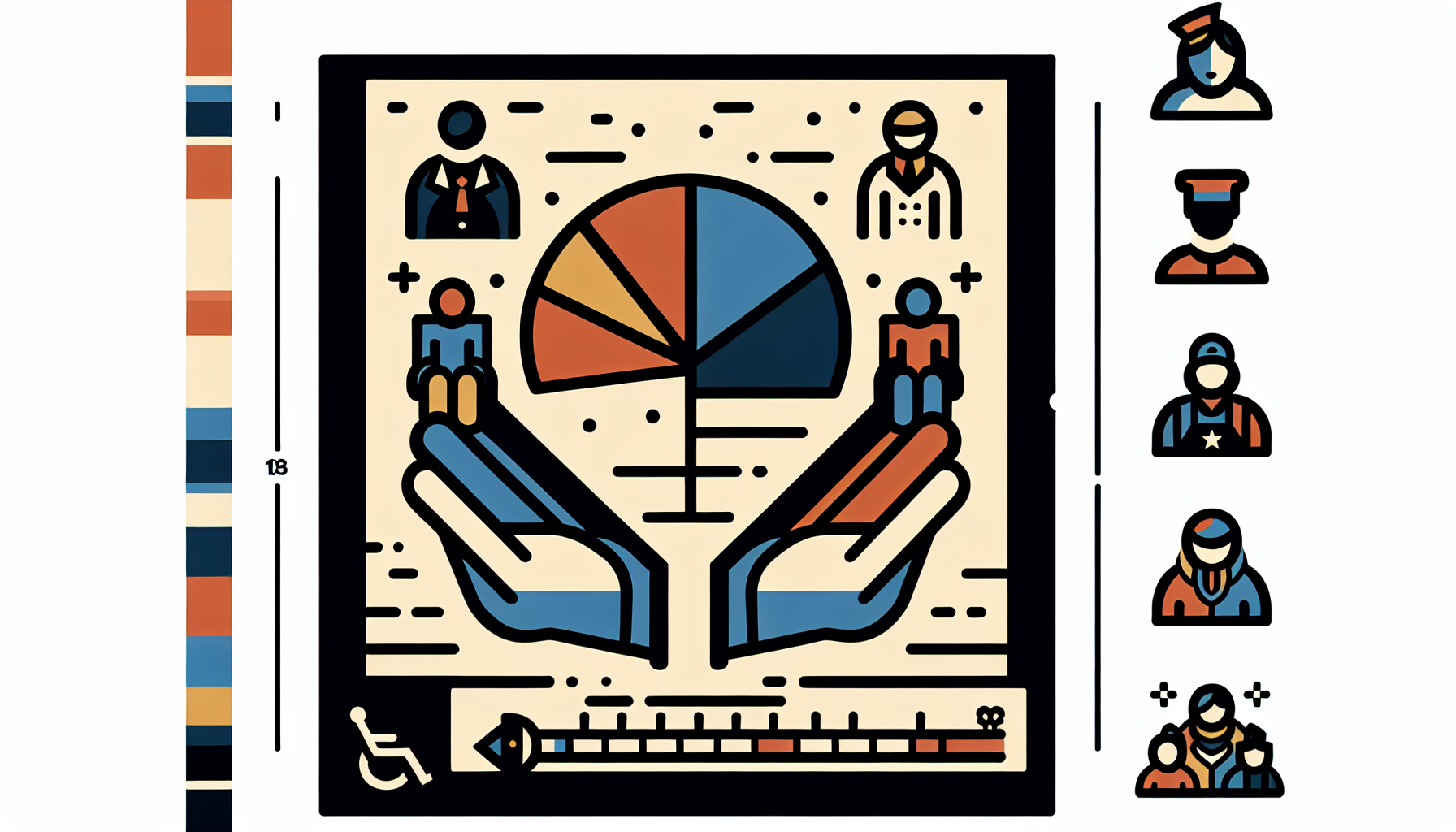Definition
Apportionments, in the context of VA benefits, refer to the distribution of a portion of a veteran’s benefits to their dependents and family members. This is typically done when the veteran cannot provide adequate financial support to them due to various reasons, such as disability or imprisonment. The decision for apportionment is based on the specific needs and circumstances of the involved parties and is determined by the Department of Veterans Affairs.
Key Takeaways
- Apportionments are a portion of a Veteran’s VA benefits designated to be paid directly to dependents, such as a spouse or children, if the Veteran cannot provide them with adequate financial support.
- These may be granted in cases of disability or death of the Veteran, or when the Veteran is not paying or is only partially providing financial support to the dependents.
- Applying for apportionment requires filling out VA Form 21-4138, providing necessary documentation and evidence, and submitting the completed form to the VA. The VA reviews each case to determine eligibility and the appropriate amount to be apportioned.
Importance
Apportionments, in the context of VA benefits, is an important term as it refers to the distribution of a veteran’s compensation, pension, or dependency and indemnity compensation benefits among the veteran’s dependents or other eligible parties.
These benefits may be apportioned between spouses, children, or dependent parents, resulting in a more equitable distribution that enhances the financial security of the veteran’s family.
Understanding apportionments is crucial for both veterans and their dependents to ensure they receive the financial assistance they are entitled to and that the benefits are aligned with the specific needs and circumstances of all parties involved.
Explanation
Apportionments serve a crucial purpose within the context of VA benefits, aimed at providing essential financial assistance to designated family members of eligible veterans or beneficiaries. This financial allocation ensures that veterans’ dependents, who may be in need of support, receive a portion of the VA benefits directly to maintain their livelihoods. The underlying purpose of an apportionment is to alleviate any undue burden that may arise due to the veteran’s disability, pension, or death benefits being insufficient to meet the day-to-day needs of involved parties.
For families of veterans with disability or catastrophic injuries, apportionment not only strengthens the financial safety net but also helps maintain family stability. When determining the need for apportionments, the VA considers various factors, such as education, available resources, and exceptional circumstances. In this process, the VA appraises the financial needs of the veteran and their dependents on an individual basis, ensuring that the apportioned benefits accommodate everyone’s vital needs equitably.
Notably, apportionments are a flexible instrument, adaptable to the dynamic situations that veterans and their families might encounter over time. In essence, apportionments act as a vital lifeline for the families of veterans, fostering their welfare and financial stability without compromising the veteran’s benefit entitlements. The system ascertains that no household member is left behind in accessing the necessary assistance to thrive, thus reflecting the society’s gratitude and commitment to its veterans and their loved ones.
Examples of Apportionments
Apportionments in the context of VA benefits refer to the distribution of a portion of a veteran’s disability compensation or pension to dependents or other eligible individuals, such as a separated spouse, children, or dependent parents. Here are three real-world examples of VA apportionments:
Divorced Spouse: A divorced spouse may seek an apportionment of a veteran’s disability compensation or pension if they are unable to collect child support or alimony from the veteran. In this case, the VA will consider factors such as the veteran’s financial responsibility toward the children, the individual needs of each dependent, and the veteran’s financial ability to meet those needs.
Disabled Adult Dependents: If a Veteran has a disabled adult child who is unable to provide for themselves, the VA may grant apportionment to assist with meeting their financial needs. This apportionment could help cover living expenses, medical bills, and other necessities for the disabled adult child.
Dependent Parents: In cases where a veteran’s dependent parents are in financial need, the VA may allow apportionment of the veteran’s disability compensation or pension to aid in their support. Depending on the financial situation of the parents, this could include funds for necessary living expenses, medical care, and other essentials for their well-being.In each of these examples, the VA determines the amount of apportionment granted based on individual circumstances and the financial needs of the dependent or eligible individual. The goal of apportionments is to ensure that veterans fulfill their financial responsibilities toward their dependents, while also considering the veterans’ own needs and circumstances.
FAQ section: Apportionments
What are apportionments in VA benefits?
Apportionments are a part of VA benefits where a portion of a veteran’s compensation, pension, or educational benefits is awarded directly to the dependents of the veteran. This is usually due to the fact that the veteran is not financially supporting their dependents either due to incarceration, legal separation, or other reasons.
Who is eligible to receive apportionments?
Veterans’ spouses, children, and parents may be eligible to receive apportionments, depending on the specific benefit program and the veteran’s circumstances. The VA will evaluate each case individually to determine eligibility for dependents.
How do I apply for apportionments?
To apply for apportionments, you will need to submit a request to the VA office that handles benefits claims. You can do this by completing and submitting VA Form 21-0788 (Information Regarding Apportionment of Beneficiary’s Award) or through a written request specifically stating your desire to receive apportionments along with relevant supporting documents.
How are apportionment amounts determined?
The VA reviews each apportionment request on a case-by-case basis and determines the appropriate apportionment amount. Factors that may influence the amount include the family’s financial need, the amount of the VA benefit, and any legal requirements associated with the specific situation.
Can apportionments be modified or stopped?
Yes, apportionments can be modified or stopped under certain circumstances. The beneficiary who is receiving apportionments or the veteran can request a reconsideration, modification, or termination of apportionments if there is a change in the beneficiary’s financial situation or other relevant factors. The VA will review each request and make a determination based on the circumstances.
Related VA Benefit Terms
- Dependency and Indemnity Compensation (DIC)
- Veterans Pension Benefits
- Survivors Pension Benefits
- Education and Training Benefits
- Disability Compensation
Sources for More Information
- U.S. Department of Veterans Affairs
- Military.com
- Veterans Advantage
- National Veterans Resource Center
 Benefits.com Advisors
Benefits.com Advisors
With expertise spanning local, state, and federal benefit programs, our team is dedicated to guiding individuals towards the perfect program tailored to their unique circumstances.
Rise to the top with Peak Benefits!
Join our Peak Benefits Newsletter for the latest news, resources, and offers on all things government benefits.




















